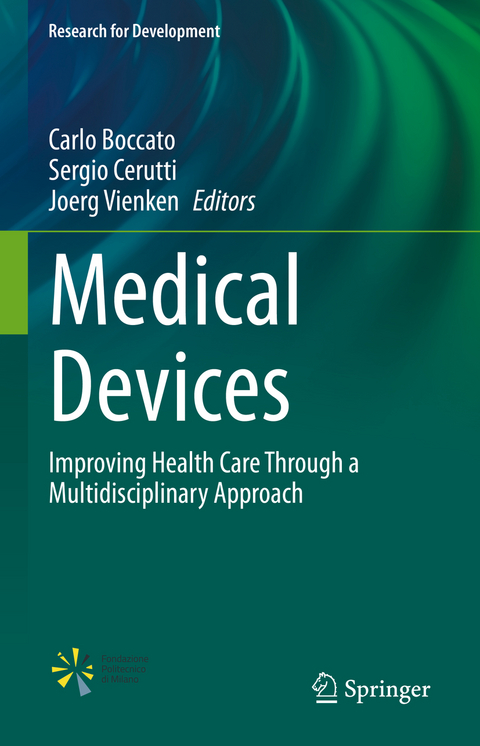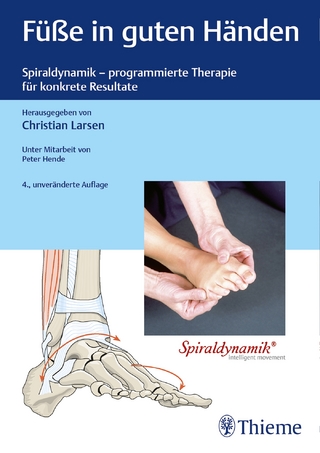
Medical Devices
Springer International Publishing (Verlag)
978-3-030-85652-6 (ISBN)
Carlo Boccato is now retired but acts as a freelance consultant for dialysis center infrastructures and water treatment systems. From 1995 to 2015 he was Project Director, Facility Management at Fresenius Medical Care with responsibility for the definition of technical infrastructures for dialysis centers. He graduated with honors in Physics from State University of Milan in 1976 with a thesis on the use of ultrasonic techniques for diagnostics in neurosurgery. After working as a project engineer at Honeywell Information Systems and as a project engineer and project manager at various aerospace companies, he became head of the project management department at FIAR-Galileo Avionics in 1990. He served as a member of the ISO Working Group on Renal Replacement, Detoxification and Apheresis (ISO/TC150/SC 2/WG05) and a member of the JWG ISO - IEC/SC 62D MT20 for the preparation of a guideline for the safe operation of medical equipment used for hemodialysis treatments. Sergo Cerutti is Emeritus Professor in Biomedical Engineering at Polytechnic University (PU; Politecnico di Milano), Milan, Italy, where he was Professor of Biomedical Signal and Data Processing in the Department of Electronics, Information, and Bioengineering for more than 20 years until his retirement in 2017. Prior to rejoining PU, where he had studied and been an Associate Professor, he had been Professor of Biomedical Engineering in the Department of Computer and System Sciences at University of Rome "La Sapienza". His research activity has mainly focused on various aspects of biomedical signal, data processing, and modeling relating to the neurosciences and cardiovascular and autonomic nervous system applications. He is the author of more than 600 indexed international scientific contributions and has an h-index of 55 (ISI score) or 67 (Google Scholar). In 2009 he received the IEEE-EMBS Academic Career Achievement Award, the most important acknowledgement of a scientific career issued by IEEE. Joerg Vienken was Vice President (Biosciences) at Fresenius Medical Care for almost 20 years until his official retirement in 2013. His previous positions had included Director and Group Leader (Clinical Research & Scientific Marketing; Science Services) at Akzo Nobel AG and board member of Nephro-Solutions AG (Hamburg). He is now a freelance consultant and a member of the Supervisory Board of Zytoprotec (Vienna). He graduated in Chemical Engineering (Dipl. Ing.) from the Technical University of Darmstadt in 1975 and gained his PhD (Dr. Eng., Biophysics) from the same university in 1990. He subsequently worked as an Assistant Professor at the Nuclear Research Center Julich and Julius-Maximilians University of Wurzburg, Germany. Dr. Vienken has taught at many universities within Germany and internationally and has served on various technical advisory committees and journal editorial boards. He is a past president of the Association of German Biotech Companies (VBU) and the International Federation of Artificial Organs (IFAO). He is a Distinguished Fellow of ERA-EDTA and in 2012 received the Emil S. Bucherl Award for Lifetime Achievement from the European Society for Artificial Organs (ESAO).
1. Introduction (CB, SC, JV).- 1.1 How the medical devices can add value and support the health systems worldwide for present and future challenges.- 2. Role of technology in Health Care (CB, JV).- Historical background: summary of the different approaches to medicine along the times.- The technology in medicine: from the stethoscope, to the WWI innovation, to the present.- The meaning of innovation in technology and medicine.- 3. Definition and international classification of Medical Devices (SC, JV, GC).- 3.1 The medical device concept.- Medical devices and pharmaceuticals: an important difference.- The rationale behind the definition.- 3.2 Standards and regulations (ISO, AAMI (USA), MHW (Japan), MDD (Europe)).- Description and comparison among the different standards.- The rationale behind the classification.- Evaluation of risks and benefits.- Focus on EU MDR.- The impacts of classification on design and operation of medical devices.- Remarks on in-vitro diagnostics and combinationproducts.- 3.3 ICT and patient's privacy.- 3.4 Ethical aspects.- 4. Technical and operational perspective (CB, JV).- 4.1 Typical lifecycle of a medical device.- 4.2 The impact of Medical Devices in the healthcare institution.- 4.3 The need for a systemic approach.- 5. Economic Perspective (EL, SF, MdV).- 5.1 Overview.- 5.2 Value in medicine.- 5.3 Reimbursement systems.- 6. Further challenges (CB, SC, JV, SF).- 6.1 Healthcare sustainability and consequences on medical devices technology.- 6.2 Medical devices in Developing Countries.- 7. Future outlook and conclusions (CB, SC, JV).
| Erscheinungsdatum | 26.02.2022 |
|---|---|
| Reihe/Serie | Research for Development |
| Zusatzinfo | XIX, 275 p. 1 illus. |
| Verlagsort | Cham |
| Sprache | englisch |
| Maße | 155 x 235 mm |
| Gewicht | 600 g |
| Themenwelt | Medizin / Pharmazie ► Gesundheitswesen |
| Medizin / Pharmazie ► Pflege | |
| Medizin / Pharmazie ► Physiotherapie / Ergotherapie ► Orthopädie | |
| Technik ► Medizintechnik | |
| Wirtschaft ► Betriebswirtschaft / Management | |
| Schlagworte | biomedical engineering • health care management • health care system sustainability • health economy • Medical Devices • medical devices directives & regulations • Medical Electronics |
| ISBN-10 | 3-030-85652-6 / 3030856526 |
| ISBN-13 | 978-3-030-85652-6 / 9783030856526 |
| Zustand | Neuware |
| Haben Sie eine Frage zum Produkt? |
aus dem Bereich


